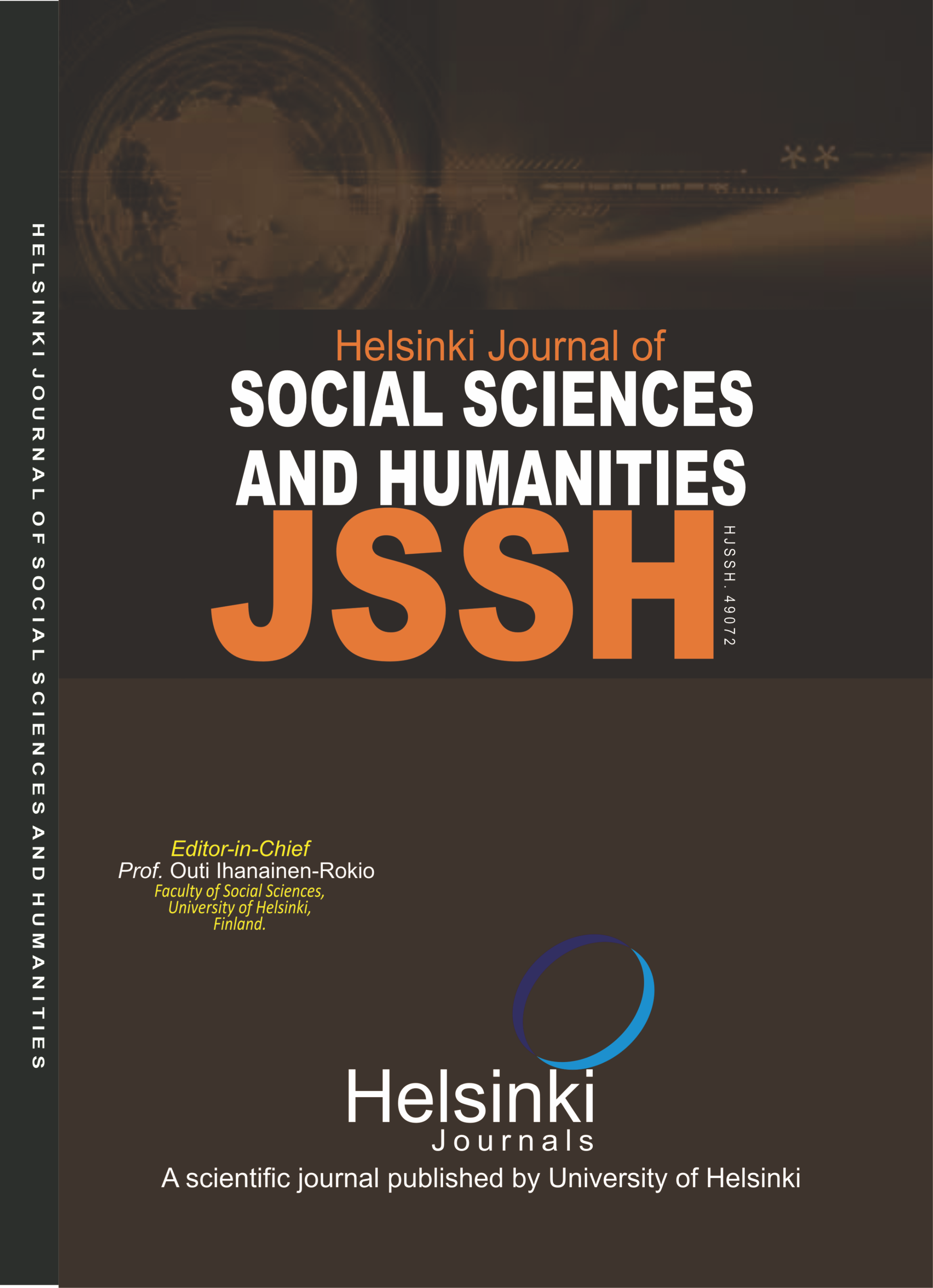HELSINKI JOURNAL OF SOCIAL SCIENCES AND HUMANITIES (HJSSH)
THE “SHADES OF GREY” IN THE FUNDAMENTAL PROBLEMS OF NIGERIA’S EXTERNAL RELATIONS: AN ASSESSMENT OF THE HISTORICAL IMPERATIVES
E-ISSN: 7764-9221
P-ISSN: 3442-3567
DOI: https://iigdpublishers.com/article/840
This paper did set out to examining nexus between the fundamental problems of Nigeria’s foreign policy and the historical imperatives. Social, political and economic problems of the current Nigerian state had left the managers and policy makers wandering on how best to articulate a foreign policy that would stand the test of times especially in the modern international environment that is brutish and nasty to third world states. To some school of thoughts in Nigeria, the wobbling and fumbling over the execution of domestic policies by the state had caused or impacted on the Nigerian state not being able to develop an effective foreign policy. The continual failure of Nigeria’s foreign policy over time did cause the paper into examining the shades of grey that underpins the consistent failure of foreign policy articulation, implementations, and thrust. The attempt at understanding the shades of grey that underpins the consistent failure of foreign policy projection and thrust of the Nigerian state over time caused the paper delving into the history of the “coming into being” of the Nigerian states. Again, the need to examining the historical and the fundamental imperatives of the consistent foreign policy failure caused the paper into seeking for more the nexus between the domestic environment (realities) and international environment in which Nigeria’s foreign policy operates. All of these examinations had lead the paper to several conclusions that includes the colonial experiences and legacies being a contributory factor that had help tied Nigeria’s economy to the Western capitalist economy, thus being incapable of been assertive and independent. Furthermore, the skewed, yet, inherited structural imbalance in Nigeria which had elevated the problems ethnicity, nepotism thus hampering national cohesion and nation building had further exacerbated the problems of articulating and implementing Nigeria’s foreign policy. From the conclusions the paper slide into recommendations canvasses herein.
Dienye Emimeke Henry
Adelusi & Oluwashakin (2014). “Foreign Policy and Nigerians in Diaspora: An Analysis of President.
Anyaele, (2005). Nigerian Foreign Policy in Ogo & Emakpo (eds). The Evolution of Nigeria‟s Foreign Policy. http://wwwshvoong.com/books/1239-evollution.ng.
Awolowo, O. (1968). The Peoples‟ Republic. Ibadan: Oxford Univerisity Press.
Ayodele, I.W, Muyiwa, A. A, Chidozie, F.C. (2015). A Critical Evaluation of Nigeria‟s Foreign Policy at 53. Research on Humanities and social sciences.
Chidozie, Ibietan & Ujara (2014). “Foreign Policy, International Image and National Transformation: A Historical Perspective”, International Journal of Innovative Social Sciences & Humanities Research 2(4): 49 – 58.
